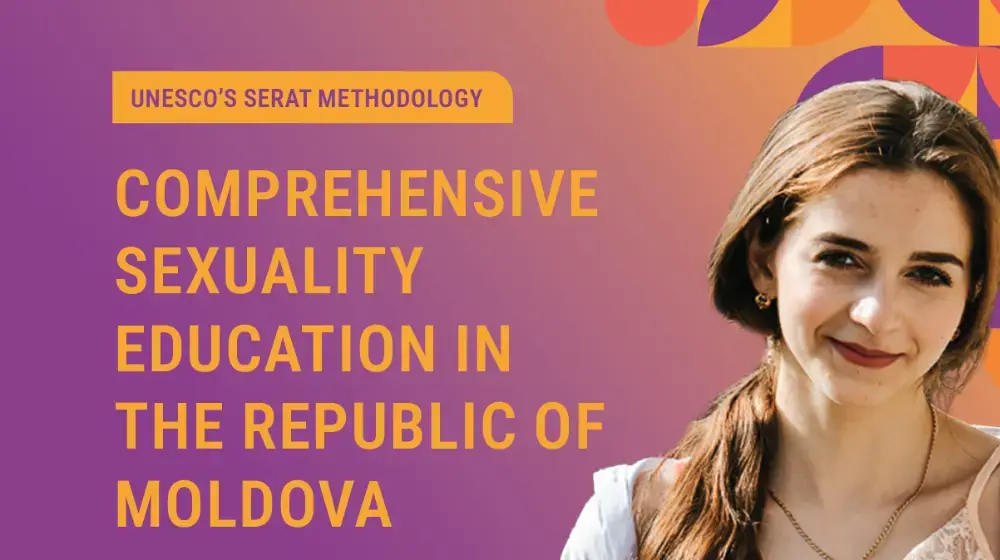An analysis of key indicators of the sexual and reproductive health (SRH) of adolescents and young people in the Republic of Moldova shows a lack of clear improvement trends in recent years for some components, such as HIV incidence and gender-based violence. The adolescent pregnancy rate, although about 25 per cent lower in the last 4–5 years, remains one of the highest in the European region, where the rate is 65.6 per cent lower than in the Republic of Moldova.
Comprehensive sexuality education (CSE) has a positive influence on the development of children and adolescents. It helps them to acquire knowledge and develop the skills they need to avoid risky behaviours, thus enabling healthy, harmonious and responsible maturation. Access to education and information on SRH is a fundamental human right that must be ensured through formal and non-formal education programmes. The school has a special role in ensuring access to age-appropriate sexuality education, which has a longterm impact if it is taught in a qualitative and systematic way.
In recent years, many actions have been carried out in the Republic of Moldova to develop health education programmes that integrate sexuality education, in both the compulsory and optional school curricula. In this context, a need appeared to analyse how impactful the actions carried out in the field of curriculum development have been, and how they have influenced the quality and comprehensiveness of sexuality education in the compulsory curriculum.


